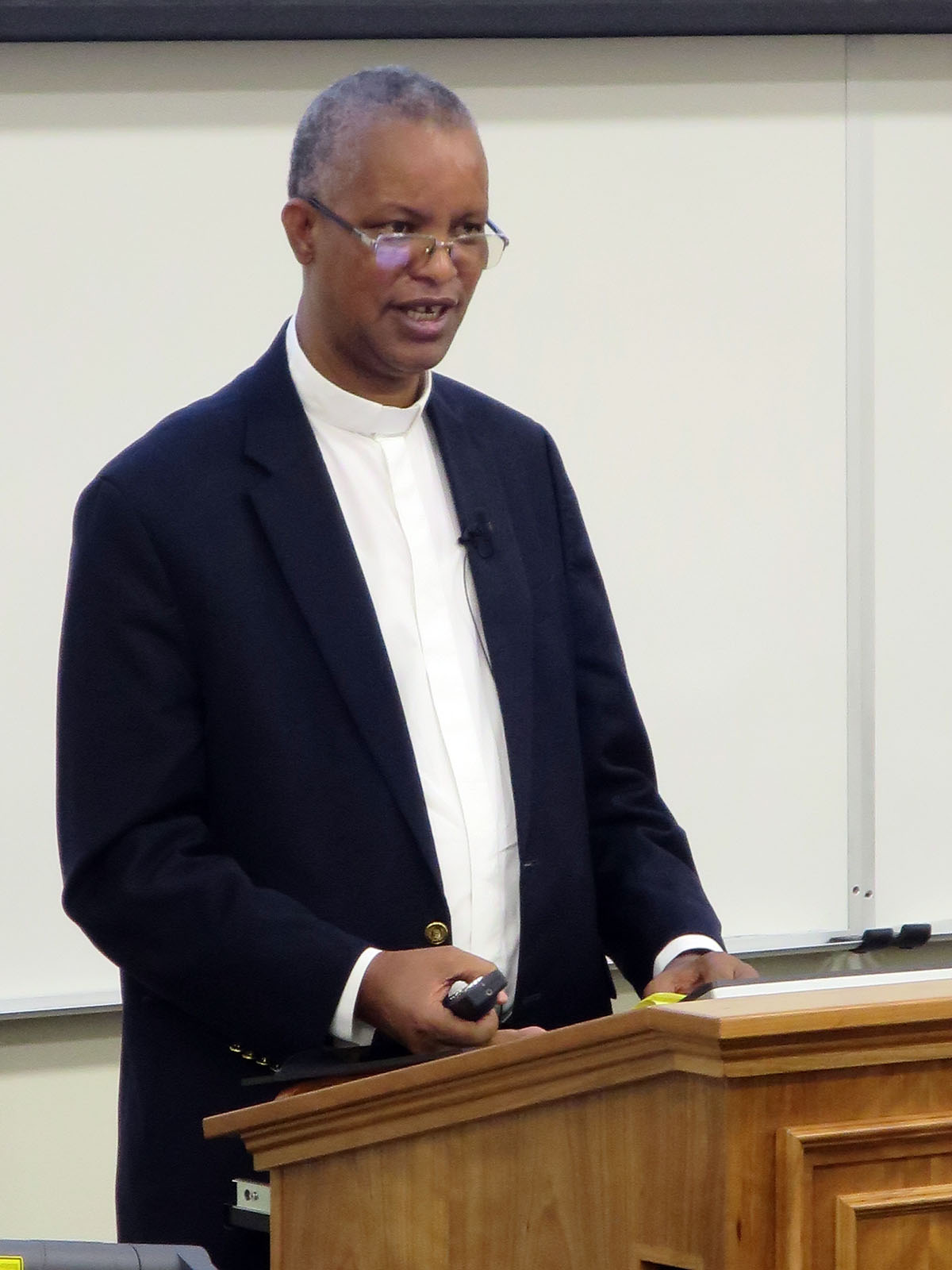





Herménégilde Ndoricimpa
by Jeremy Driggs
The session on Burundi and Ethiopia was chaired by Chantal Thompson, Teaching Professor of French, Brigham Young University, and panelists were Zenebe Beyene, Director, Office of External Relations, Partnerships and Communications, Addis Ababa University, Ethiopia, Herménégilde Ndoricimpa, Chancellor, University of Great Lakes, Burundi, and Solomon Fikre Lemma, Dean, College of Law and Governance Studies, Addis Ababa University, Ethiopia
Zenebe Beyene of Ethiopia spoke on inter-religious cooperation, religious pluralism, and inter-religious rights. He opened by discussing challenges that are common to all people, regardless of inherent differences. Religion, according to him, is a cover-up or a tool behind many conflicts. He talked about how ethnic religions are practiced in Ethiopia. He also talked about the variety of religions practiced there, from Islam to Rastafarianism. In spite of the differences in these religions, they all place major emphasis on basic human decency. He talked about the conflicts that have existed between Islam and Christianity, dating back to the 7th century. Religious coexistence in Ethiopia has been hampered by the government in Ethiopia. The ruling elite has historically embraced a policy of discrimination and oppression. According to him, in a multi-religious society, the destinies of all men are intertwined. Interreligious cooperation is more natural for humankind.
Herménégilde Ndoricimpa said that Burundi is referred to as the heart of Africa. Burundi is surrounded by other countries and has a very rich culture that emphasizes the "dance of the drum." 75% of the country is Christian, and only around 2% are Muslims. The country also practices a mix of animism and Christianity. The country has existed since the 16th century, governed by the dynasties of kings. The country has been colonized by Germany and Belgium, and in 1966 became a democratic republic. Rights for religions are fought for, not freely given. Political powers in central Africa have tried to force religion out of the political arena, because they don't want to be bothered by religions, but religions say that they have a say in what happens in the political world. Religious rights are easily ignored in Africa. Some religions forbid interreligious marriage. It is advised that people marry within the same religion, but people also have the right to marry outside of their religion, especially for love. Some say that human rights go against God's rights. Now, many people wish to leave organized religion to practice as they see fit. Truth is symphonic. Religious freedom can be forgotten in the area of religious coexistence. Religious dialogue is the only way to obtain truth. Facing the problem of coexistence of religious groups, the government has the responsibility to legislate the right to religious freedom. There can be mutual respect and peaceful coexistence this way. African religions have been trampled as Africa has attempted to assimilate into society. They practiced the tabula rasa method, starting from scratch. Traditional religions resisted this method, and began to use syncretism, or a mixing of traditional religions and Christianity. Religious identity became complex in this way. After colonization and independence, Christians had a lot of power in the country. Judges protected Christians, and everyone was helping to proliferate Christianity. Later on, the government persecuted the Catholic Church, because they considered it to be its own state-within-a-state. Today in Africa, religion can be seen as a business, and this attitude contributes to fraud amongst various churches that come and go in the country.
Dr. Solomon Fikre Lemma said that the interplay between ethnicity and religion is important for determining Ethiopian identity. Ethnicity had become more important than religion. Religion in modern times needs to have better treatment politically. The state and religion need better relationships. The government is considered an equal-opportunity oppressor in regards to religion. Everyone has a right to freedom of religion, including the right to convert. For religious freedom to work, mutual understanding is a necessity.
